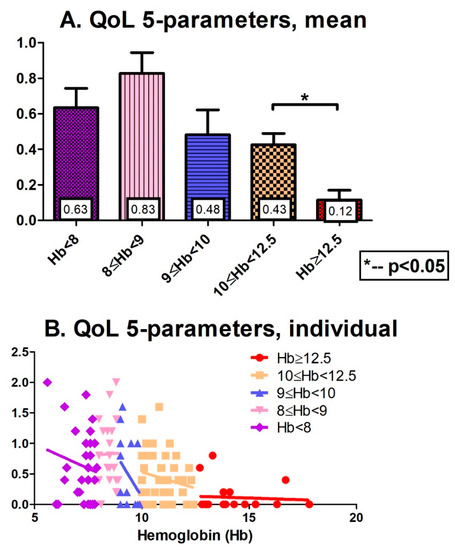Myelodysplastic Syndromes: From Inflammatory to Therapeutic Approaches (Closed)
A topical collection in Journal of Clinical Medicine (ISSN 2077-0383). This collection belongs to the section "Hematology".
Viewed by 1599Editor
Topical Collection Information
Dear Colleagues,
Impaired function of immune cells and aberrant inflammatory response of the immune system is frequently observed for patients with myelodysplastic syndromes (MDS) and chronic myelomonocytic leukemia (CMML). Increased secretion of inflammatory cytokines, including tumor necrosis factor-(TNF)-α and interferon (IF)-γ, contributes to cell death of myeloid precursor cells and triggers transformation to acute myeloid leukemia (AML). For CMML patients, a phospho-STAT5 hypersensitive response to GM-CSF has been identified that is positively correlated with high-risk disease. Altered function of cytotoxic, regulatory (Treg), helper (Th17) T cells, and natural killer (NK) cells contribute to cytopenias and disease progression. Autoimmune disorders (AD) observed for MDS and CMML patients include vasculitis, seronegative polyarthritis, relapsing polychondritis, or neutrophilic dermatosis. In a subset of patients, cytopenias are the consequence of autoreactive cytotoxic T cells and respond to immunosuppressive treatment (IST). Interestingly, despite IST, other drugs are of interest by treating MDS and CMML-associated AD and inflammatory response as the hypomethylating agent azacytidine improves cytopenias, delays disease progression, and controls AD by sparing corticosteroids and other immunosuppressive drugs. The immunomodulatory drug lenalidomide improves anemia in specific subtypes of MDS and inhibitors of the JAK-STAT pathway should be evaluated for the treatment of selected MDS and CMML patients.
Prof. Dr. Thorsten Braun
Guest Editor
Manuscript Submission Information
Manuscripts should be submitted online at www.mdpi.com by registering and logging in to this website. Once you are registered, click here to go to the submission form. Manuscripts can be submitted until the deadline. All submissions that pass pre-check are peer-reviewed. Accepted papers will be published continuously in the journal (as soon as accepted) and will be listed together on the collection website. Research articles, review articles as well as short communications are invited. For planned papers, a title and short abstract (about 100 words) can be sent to the Editorial Office for announcement on this website.
Submitted manuscripts should not have been published previously, nor be under consideration for publication elsewhere (except conference proceedings papers). All manuscripts are thoroughly refereed through a single-blind peer-review process. A guide for authors and other relevant information for submission of manuscripts is available on the Instructions for Authors page. Journal of Clinical Medicine is an international peer-reviewed open access semimonthly journal published by MDPI.
Please visit the Instructions for Authors page before submitting a manuscript. The Article Processing Charge (APC) for publication in this open access journal is 2600 CHF (Swiss Francs). Submitted papers should be well formatted and use good English. Authors may use MDPI's English editing service prior to publication or during author revisions.
Keywords
- MDS
- CMML
- AML
- Autoimmune disorders
- Azacytidine
- Ruxolitinib
- Imids
- Cytokines
- T cells







